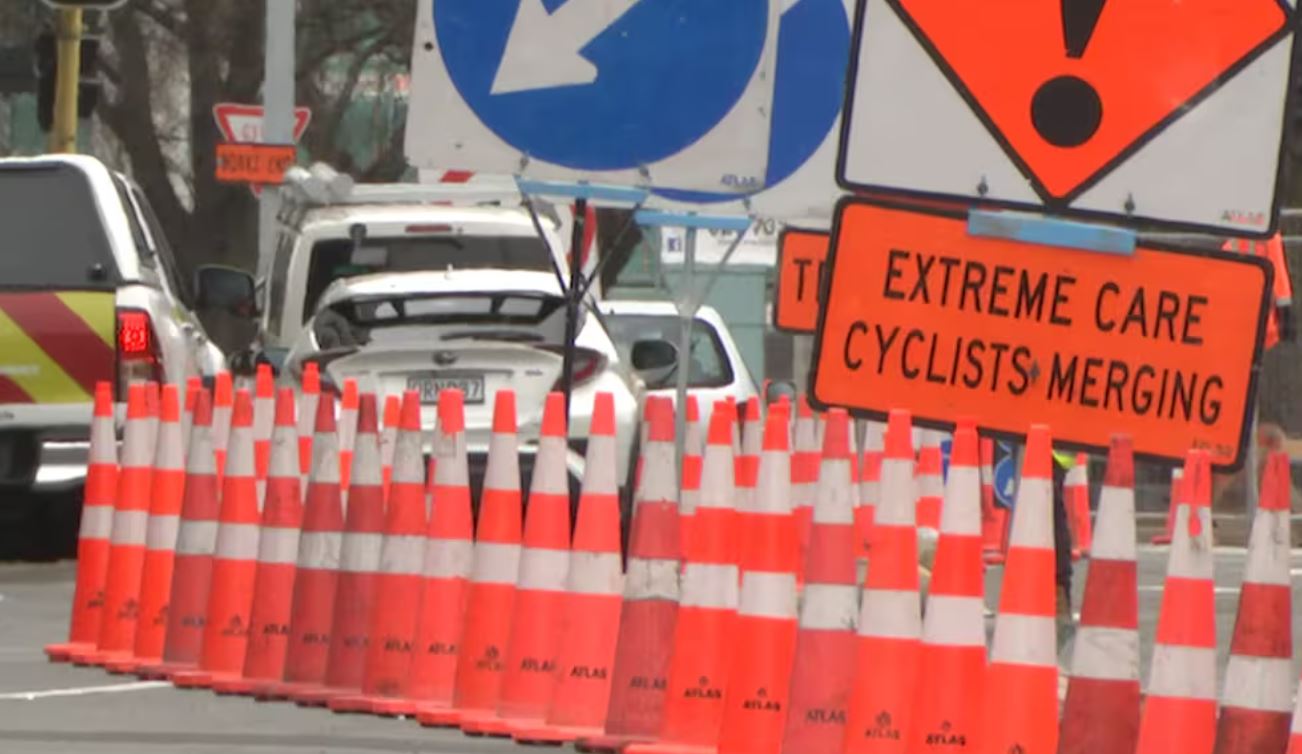The initiative, via a form on the Worksafe website, launched last Tuesday to invite reported cases of overcompliance in temporary traffic management.
“The hotline is part of a 12-month pilot, brought about by work health and safety reforms announced by the Government, to tackle over-compliance in temporary traffic management,” the health and safety regulator said.
“The initiative aims to get those deploying cones to be more proportionate and balanced while maintaining worker and public safety.”
On its first day, WorkSafe said it received 112 complaints of excess cones.
The number of complaints tapered off over the week, dropping to 82 on June 4, then steadily declining to 45, 33, and 36 over the next few days.
By June 8, reports had dipped to 28, before rising slightly to 39 on Monday, June 9.
In total, WorkSafe received 375 complaints in the first week of operation.
A regional breakdown of the reports was also provided, classified by road controlling authority.
Auckland emerged as the leading hotspot for excessive road cone complaints, with 108 reports filed in the first week.
The New Zealand Transport Agency’s state highway network followed with 73, while Wellington City Council received 57 complaints.
Christchurch City Council trailed with 22.
Workplace Relations and Safety Minister Brooke van Velden told Q+A on Sunday that the country had become “practically a sea of orange cones”.
“I think the problem that we’re facing is — because we’ve become so accustomed to seeing road cones everywhere, and we no longer associate them with harm but frustration — people don’t obey them.
She said the public’s overexposure to road cones had led to driver annoyance and disengagement.
“Whereas, in the future, my hope is that when we see road cones out on the streets, we acknowledge that there is a reason for it. It’s there to reduce risk, reduce harm, and it’s there to keep the worksite safe.”
Traffic cones a ‘political football’ — industry
Temporary Traffic Management Industry Steering Group chairperson Darren Wu said early feedback from the hotline suggested there were few genuine cases of excessive use of road cones.
“What we hope to learn from these submissions at least is, what is the public thinking, what is their perception, and why is that the case?”
He told Seven Sharp the industry was going through a “once-in-a-generation change” from a very prescriptive code to one that was more flexible.
“We know that that’s going to take some time, and the industry, at the moment, knows we want to do something to address the issues, and so we’ve just actually launched a national tidy up campaign which is ‘use it or remove it’.”
An industry representative says the hotline is “unlikely” to turn up genuine overcompliance.
Chevron Traffic Services chief executive Wayne Clarke told Seven Sharp he was worried traffic management was becoming a “political football”.
“There’s an increasing amount of accidents and incidents but, more importantly, road worker abuse that’s happening to us out there on the ground. We’ve been attacked with sledge hammers, we’ve been held up by nail guns on site, and one of our staff was run over by a member of the public.”
“Our workers are genuinely there to direct and protect. They want to get you through safely travelling to home or to work. But we also want to protect the good people doing the work on projects, the maintenance out there.”



